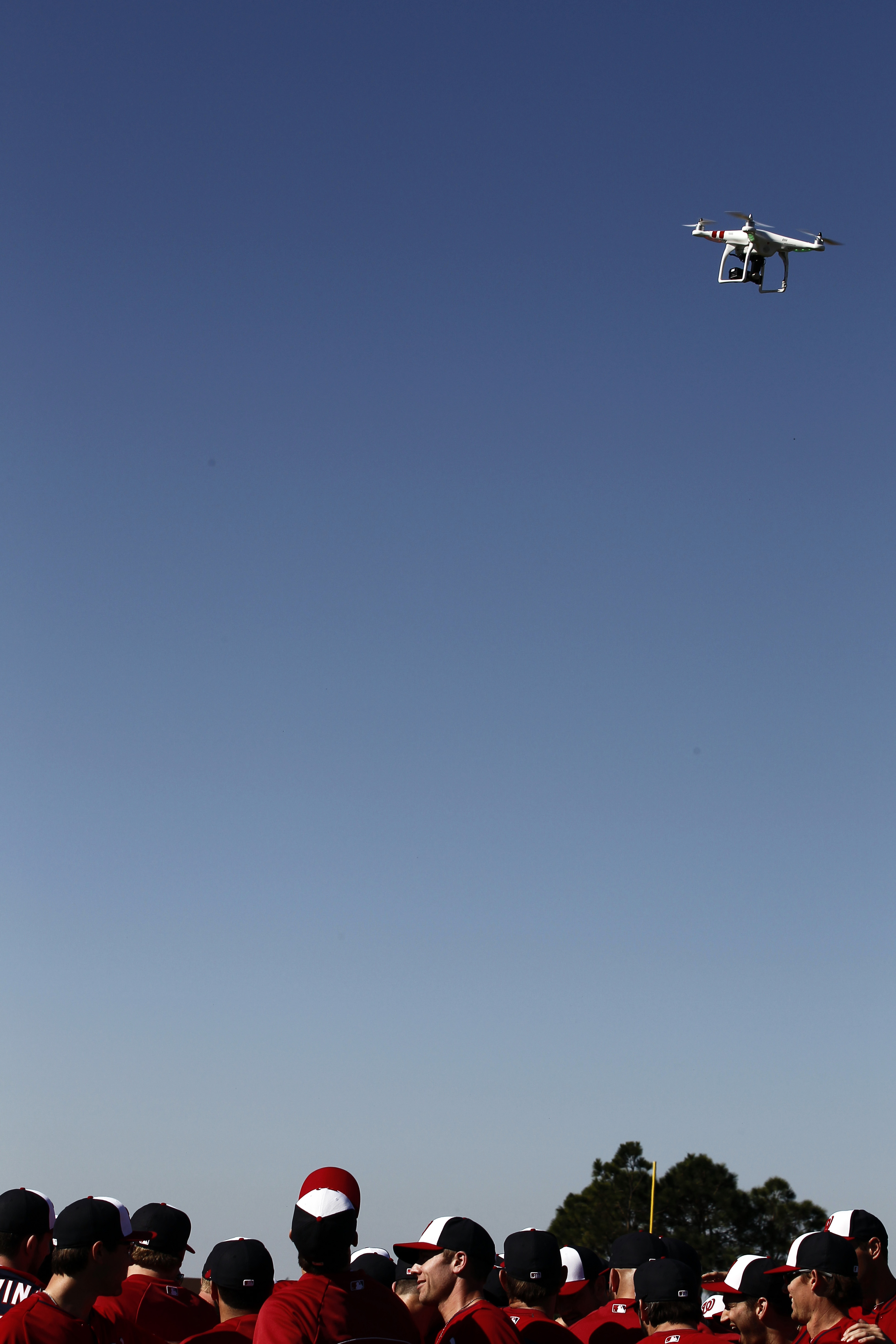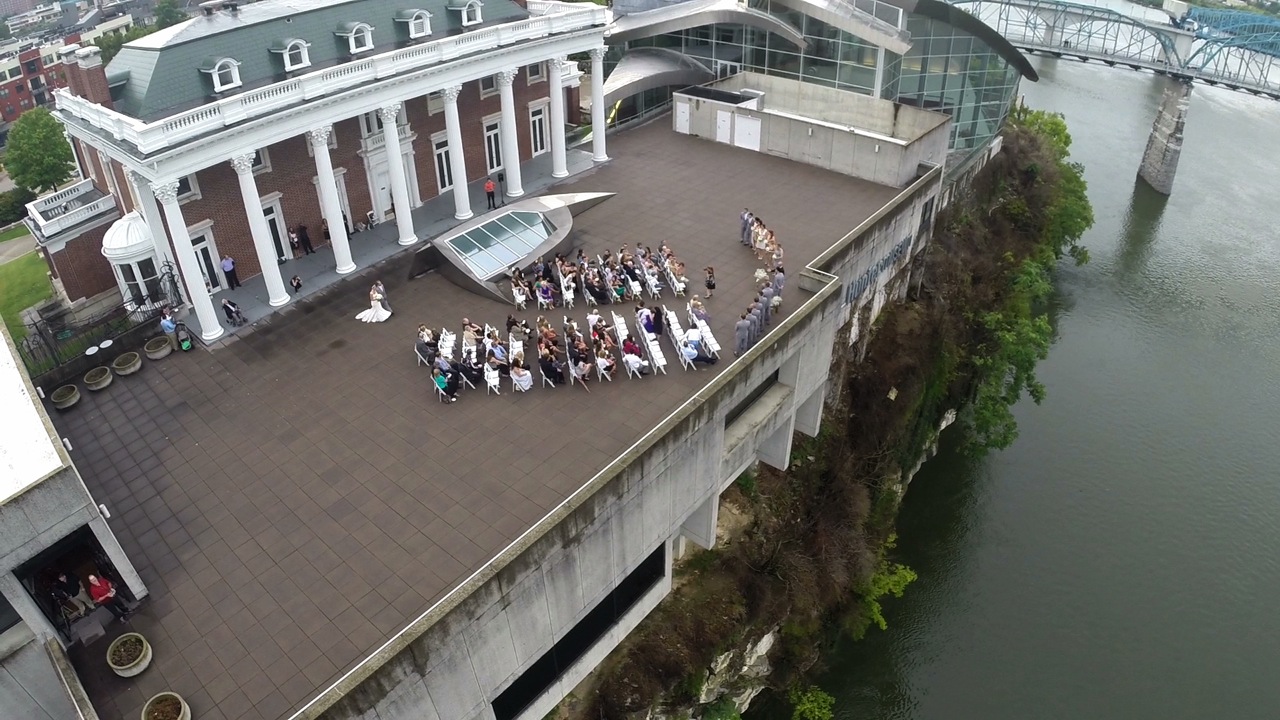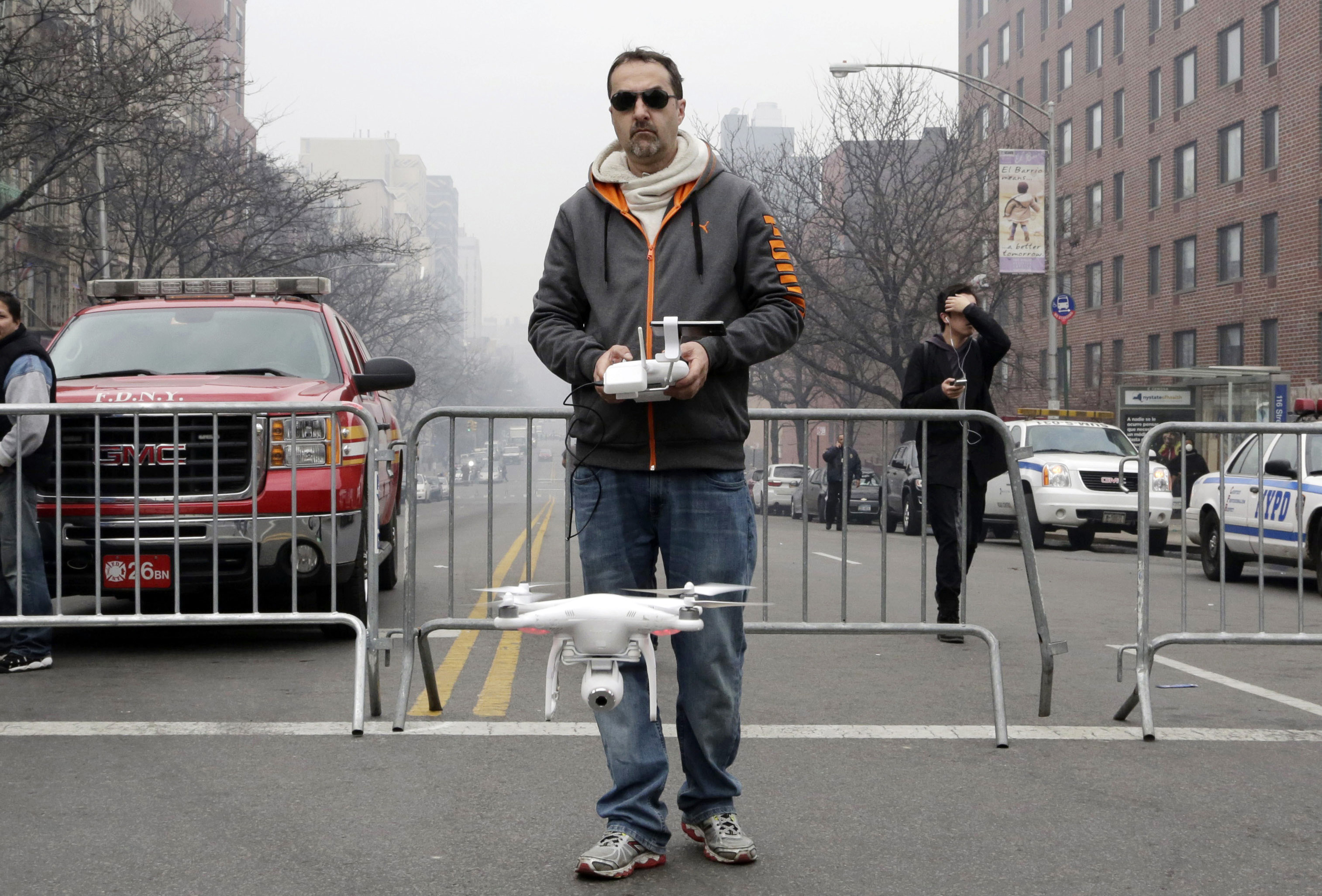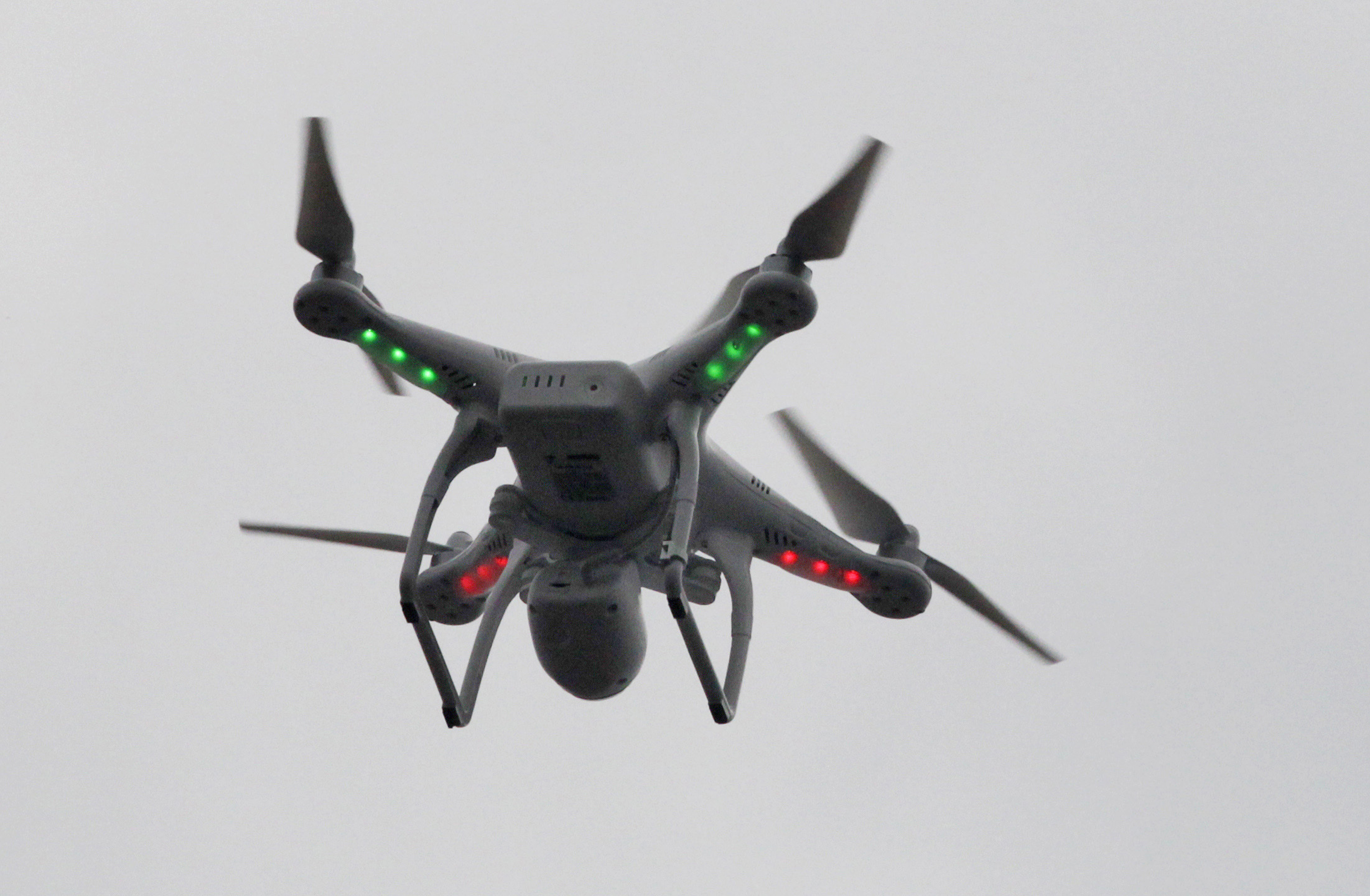Bill Crowell tells me to watch my step, as he leads me through the garage - his "man room." He points out a remote-controlled helicopter on a shelf and says it's one of the planes he flies for fun.
But near the back of the garage, sitting on red and green padded rails, is what Crowell really wants to share.
It's a little jewel: a six-rotor, remote-controlled unmanned aircraft system he won at a convention about a year ago. In more popular terms, it's a domestic drone.
Since January, Crowell has been taking it out to fields and parks and flying it around, even equipping it with a GoPro camera and taking video footage.
It's all for fun, he emphasizes.
In August, a friend of Crowell's got married at Hunter Museum of American Art. On a gray day, as friends and family of the bride and groom settled into their seats on the roof of the museum, Crowell's drone whizzed out over the Tennessee River, its tiny camera capturing footage otherwise impossible to capture.
No chopper could get this close.
An experienced drone pilot could make good money for aerial photography like Crowell captured the day of the wedding. But Crowell did it for nothing.
Drones have the potential to revolutionize the photography and videography industries, which is why we're already seeing them at high school football games, minor league baseball games, outdoor events and on real estate sites.
As long as drones are being used for hobby or recreational purposes, everything's fine, says the Federal Aviation Administration. But if they are being used commercially, the FAA says it must stop immediately.
"Anyone who wants to fly an aircraft -- manned or unmanned -- in U.S. airspace needs some level of FAA approval," states the aviation administration on its website.
If you want to use a drone commercially, you need to get a permit.
As of last week, the FAA had only granted permits to a dozen or fewer applicants. And none of the exceptions were issued locally.
Federal aviation authorities have been battling the issue of domestic drone use for years. In 2012, President Barack Obama signed the FAA Modernization and Reform Act into law. The bill ruffled many feathers because it urged the FAA to figure out how to regulate drones -- at that time still popularly associated with the assassination of Osama bin Laden -- in domestic airspace.
Two years later, little is yet clear about how drones can and can't be used in the U.S.
There are widely held misconceptions that using a drone commercially is perfectly legal as long as you're operating it within 400 feet above ground and following model aircraft guidelines.
Wrong and wrong.
"The FAA is responsible for the safety of U.S. airspace from the ground up," states the FAA. "This misconception may originate with the idea that manned aircraft generally must stay at least 500 feet above the ground."
 A remote-controlled aircraft flies over the Washington Nationals spring training workout in Viera, Fla. The government receives daily reports of drones flying near aircraft or close to airports without permission, a sharp increase from just two years ago when such reports were still unusual, federal and industry officials said.
A remote-controlled aircraft flies over the Washington Nationals spring training workout in Viera, Fla. The government receives daily reports of drones flying near aircraft or close to airports without permission, a sharp increase from just two years ago when such reports were still unusual, federal and industry officials said.Also, according to an FAA fact sheet, "you may not fly a UAS for commercial purposes by claiming that you're operating according to the Model Aircraft guidelines."
But businesses everywhere, Chattanooga included, are using drones for commercial purposes. And they seem to be getting away with it, scot-free.
A "don't ask, don't tell" attitude reigns.
Two Chattanooga-area businesses declined to go on record about using drones commercially, because they know the FAA's stance. But they are using drones commercially anyway and haven't been caught doing so.
The apparent lack of regulation makes many people wonder if the FAA, when it comes to drones, is actually just a paper tiger with little or no actual authority to limit commercial drone use, at least until new regulations go into effect.
"To me, it is clear what the rules are, but the public is getting a lot of mixed signals," said Scott Shaw, attorney at Evans Harrison Hackett law firm in Chattanooga.
He cites the case brought against Raphael Pirker, who was fined $10,000 for flying a drone around the University of Virginia campus in 2011 to collect video for a marketing company.
Pirker bucked the FAA's ruling and took his case before a National Transportation and Safety Board law judge with the contention that the FAA lacks authority to fine drone users under its existing policies. The judge agreed and ruled in Pirker's favor.
The FAA has appealed the decision.
But the case has strengthened the belief that the FAA is simply playing a cup game with the rules. The Pirker case leads experts to wonder if there actually is some wiggle room.
"There are no shades of gray in FAA regulations," the aviation administration rebuts. "Anyone who wants to fly an aircraft -- manned or unmanned -- in U.S. airspace needs some level of FAA approval."
If that's the case, "technically, paper airplanes are governed," said Shaw.
He said the situation is a mess, and that because rhetoric coming from the FAA doesn't match the highest-profile drone case to date, mass confusion reigns.
"It's just the Wild, Wild West here right now," said Shaw. "Nobody knows what the rules are."
Shaw, a specialist in business law, is telling clients that when in doubt, default to staying inside existing FAA policies and wait for the administration's complete regulations to come out, which must happen by next September -- the deadline the FAA has been given.
"I would never counsel a client to violate the law," he said. "The question is: Is this the law?"
Hard and fast drone regulations are expected to hit before September of next year. FAA authorities say the new regulations could come sooner.
In the mean time, anyone who seeks to put drones to commercial use should request permission at www.ffa.gov.
Contact staff writer Alex Green at agreen@timesfreepress.com or 423-757-6480.



